Abstract
Instructions can override the influence of programmed schedules of reinforcement. Although this finding has been interpreted as a limitation of reinforcement schedule control in humans, an alternative approach considers instructional control, itself, as a phenomenon determined by subjects' reinforcement histories. This approach was supported in a series of experiments that studied instructional and schedule control when instructions either did or did not accord with the schedule of reinforcement. Experiment I demonstrated that accurate instructions control discriminative performances on multiple avoidance schedules, and that such control persists in a novel discrimination. Experiments II and III showed that elimination of instruction-following occurs when inaccurate instructions cause subjects to contact a monetary loss contingency. Experiment IV demonstrated the reinforcing properties of accurate instructions. Skinner's view of rule-governed behavior is consistent with these findings, and can be extended to account for many aspects of instructional control of human operant behavior.
Keywords: instructions avoidance, stimulus control, monetary loss, observing behavior, rule-governed behavior, adult humans
Full text
PDF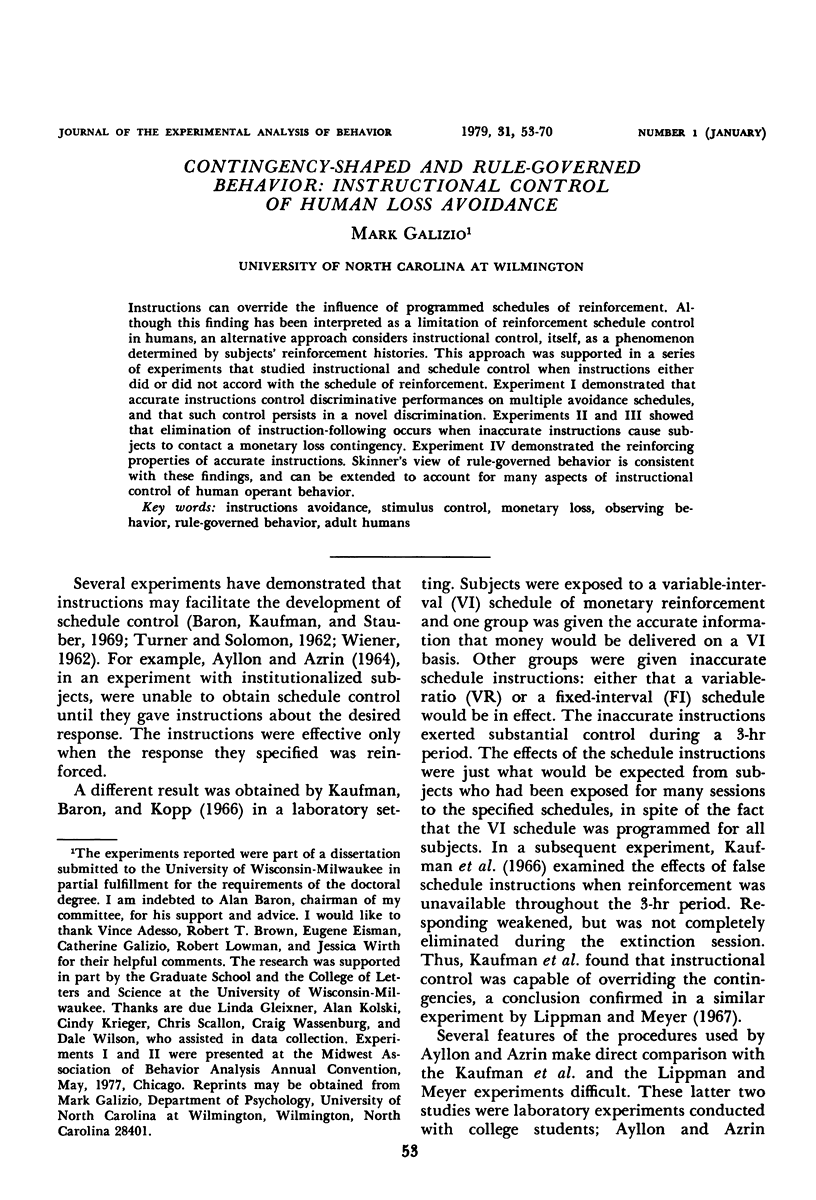
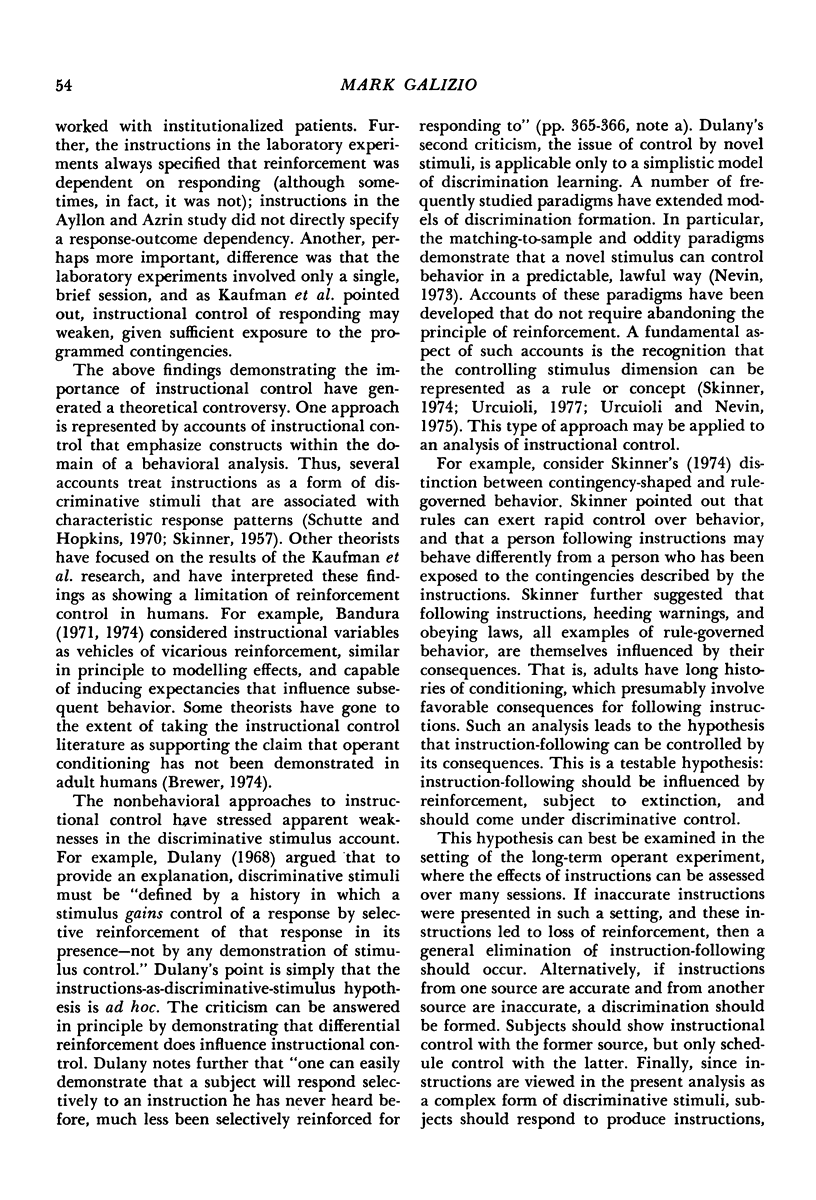
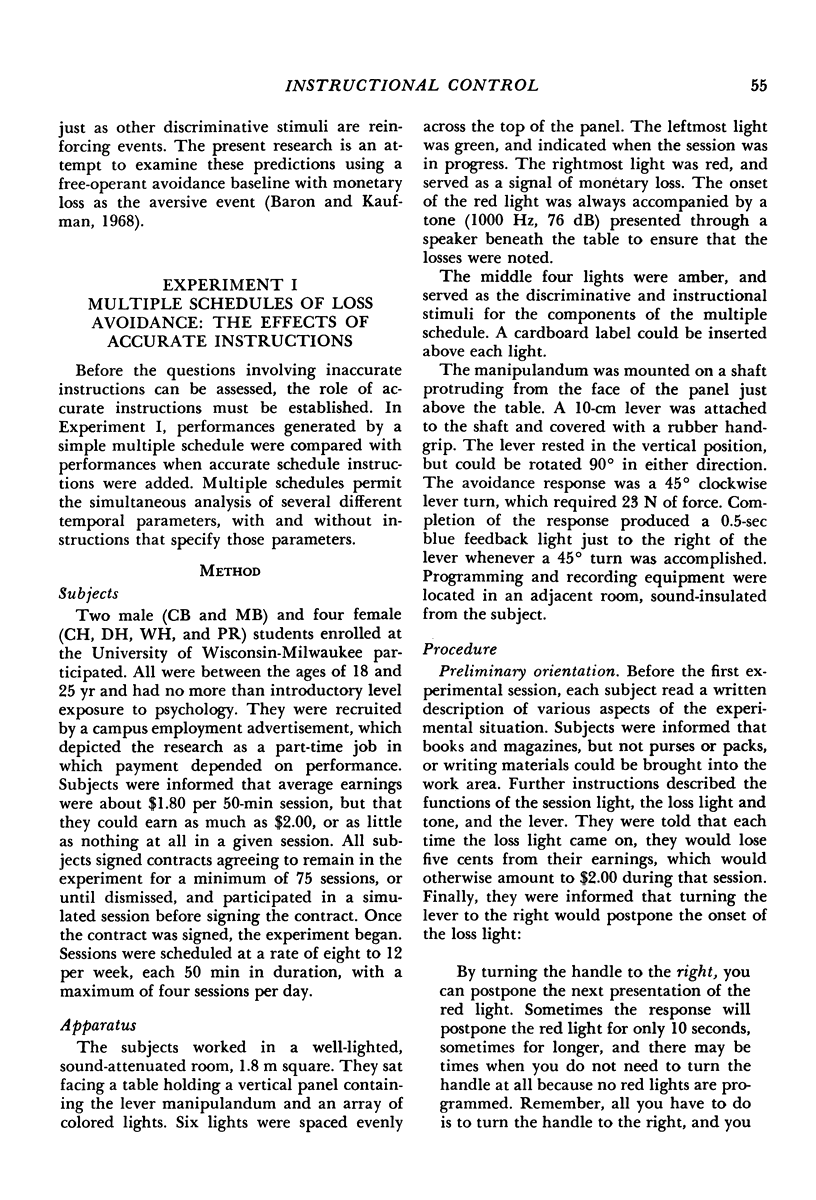
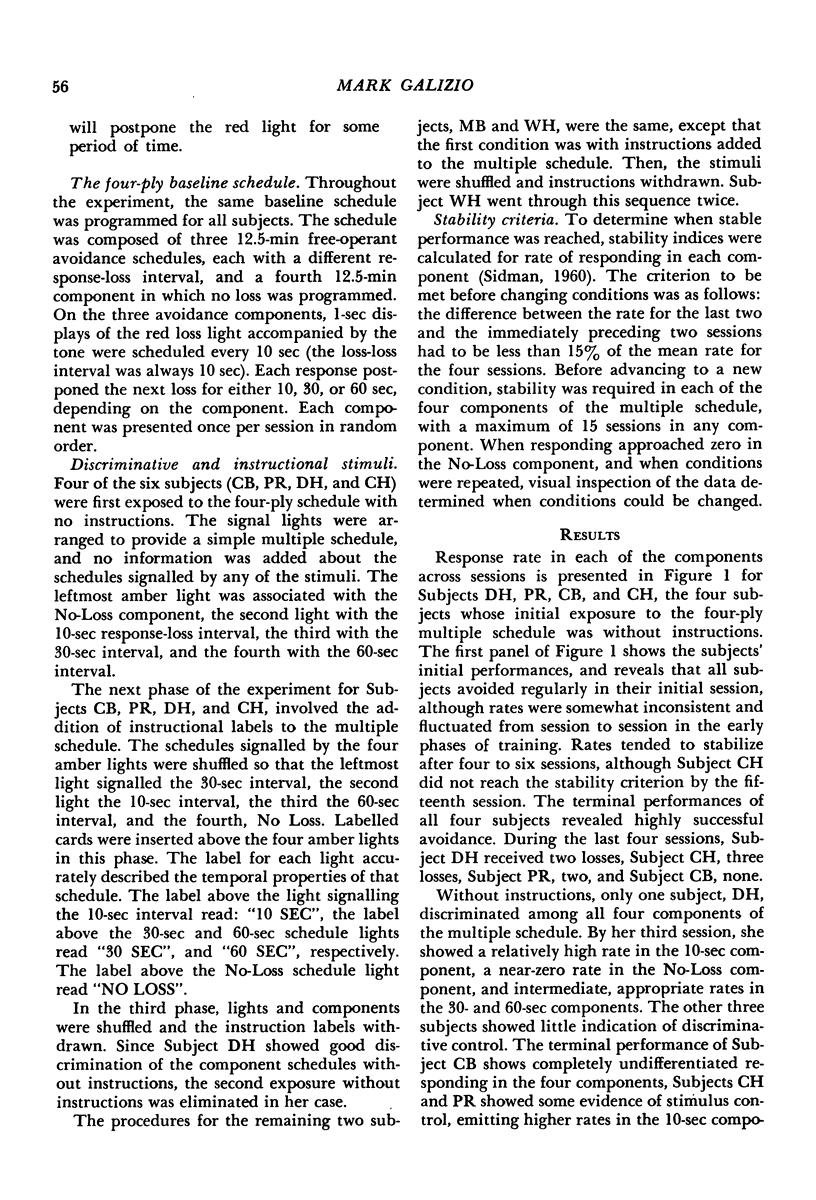
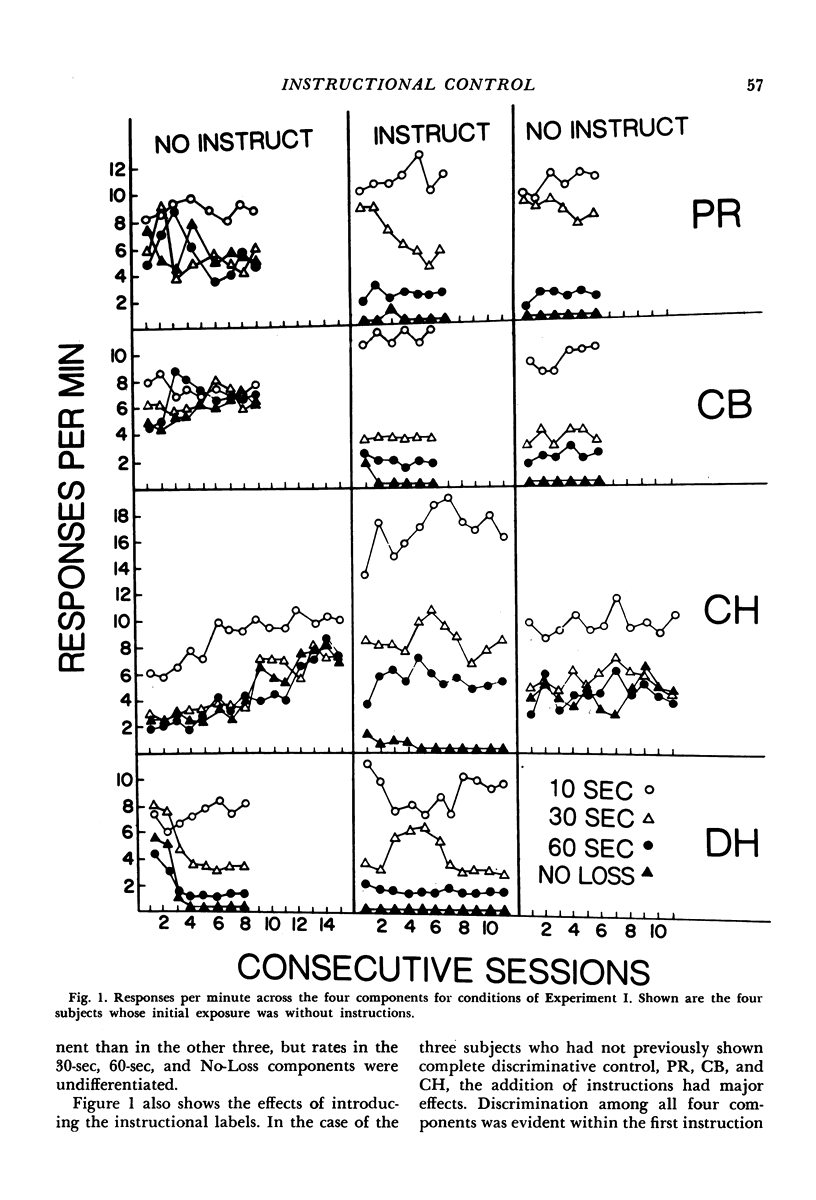
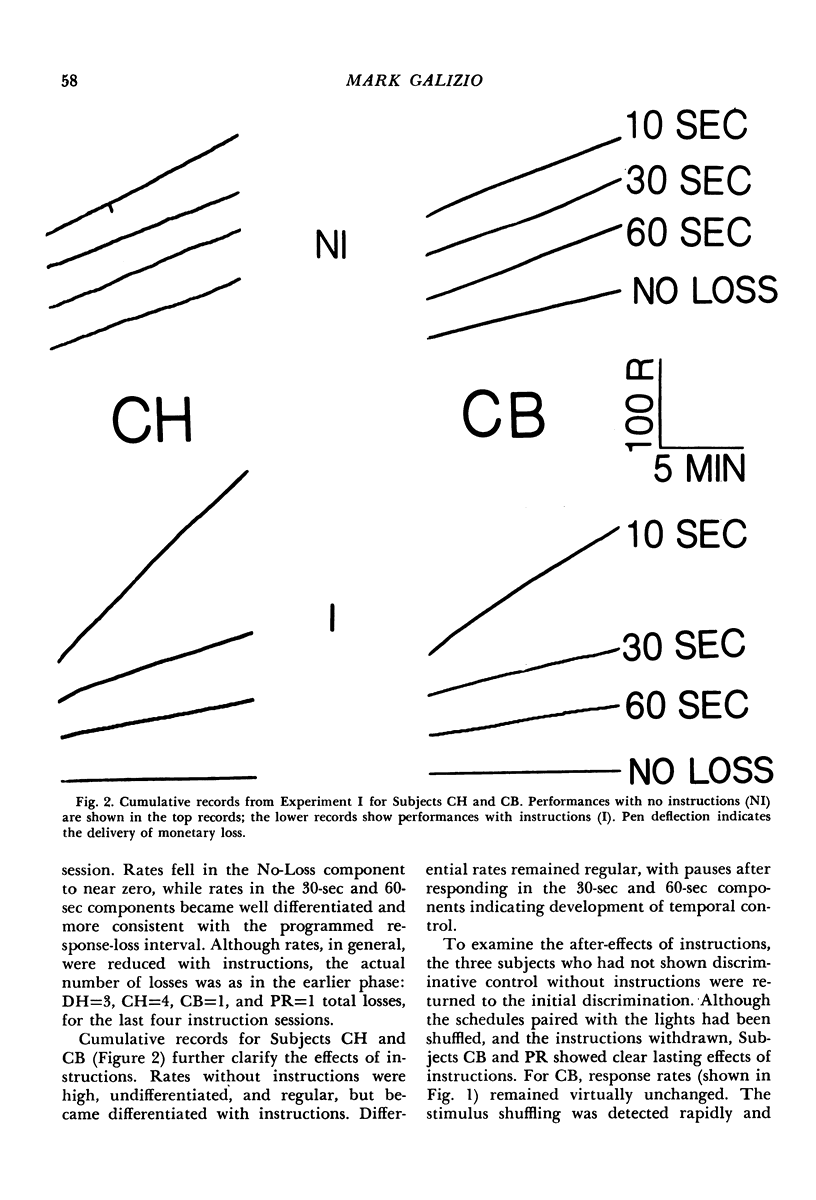
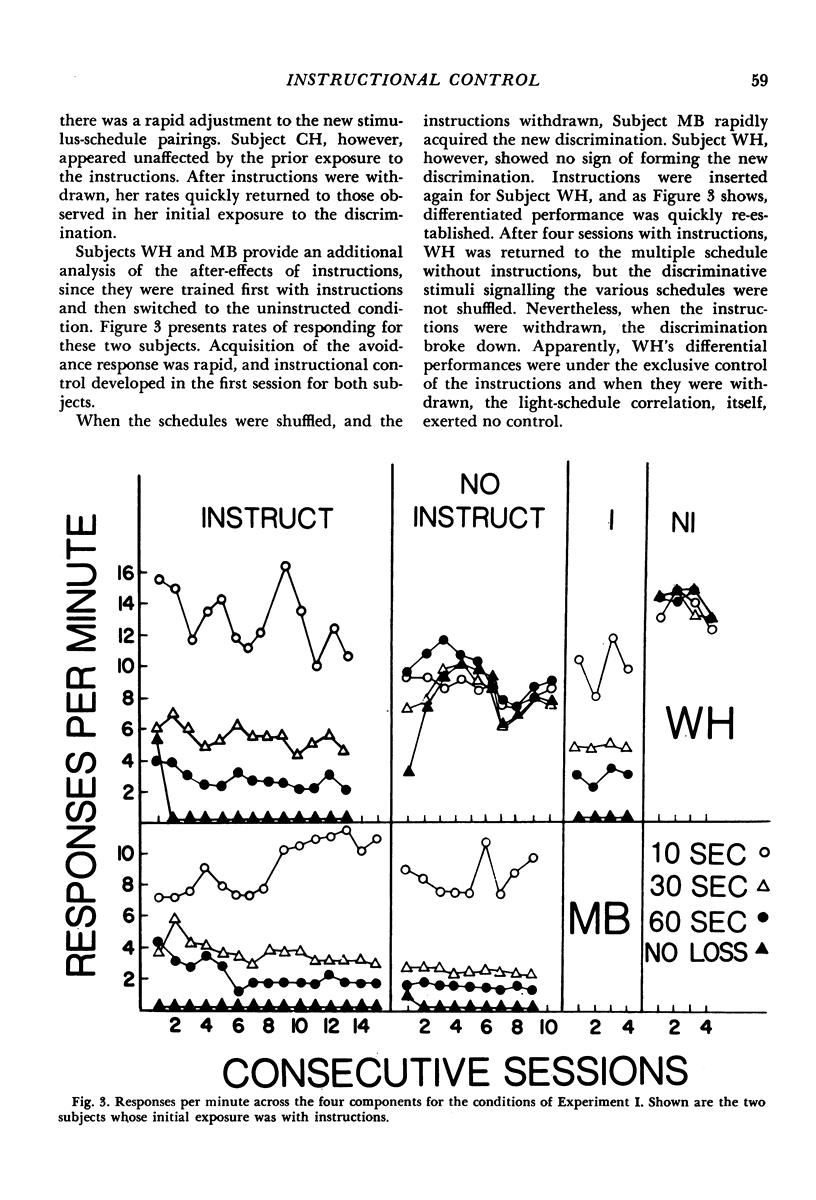
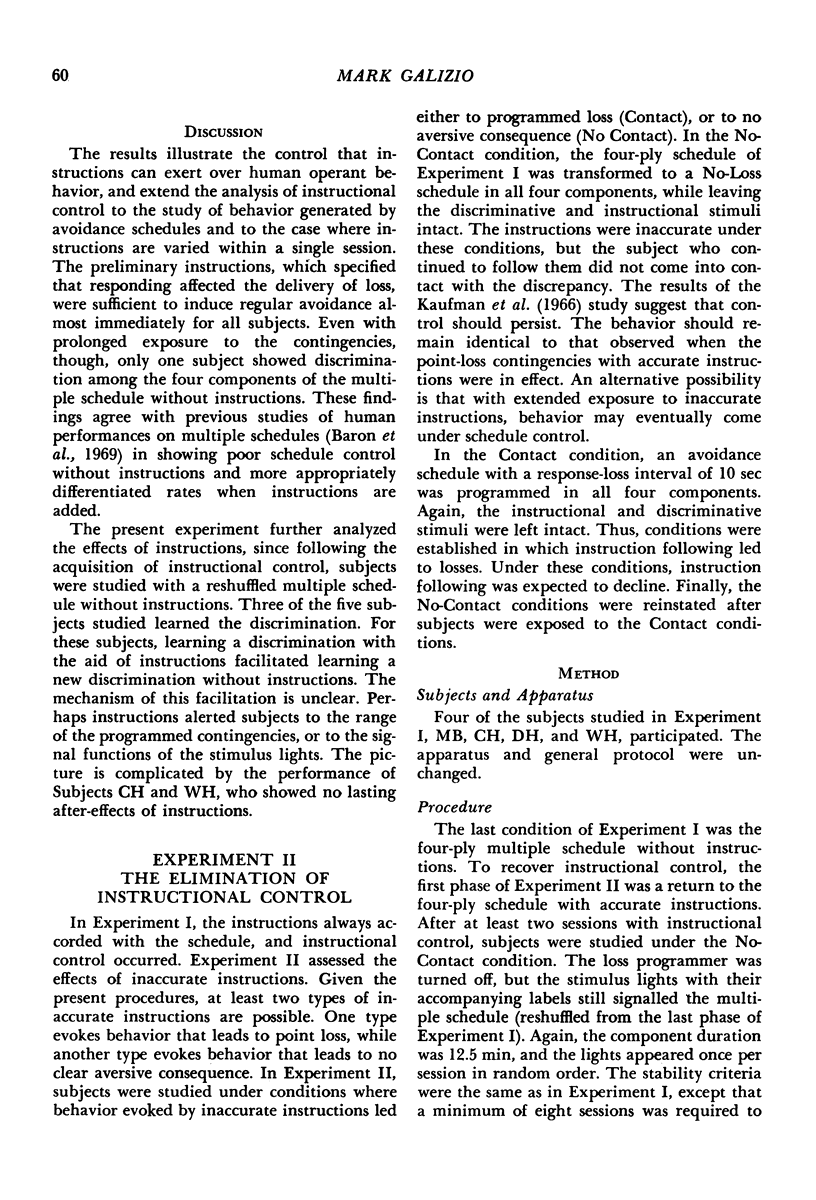
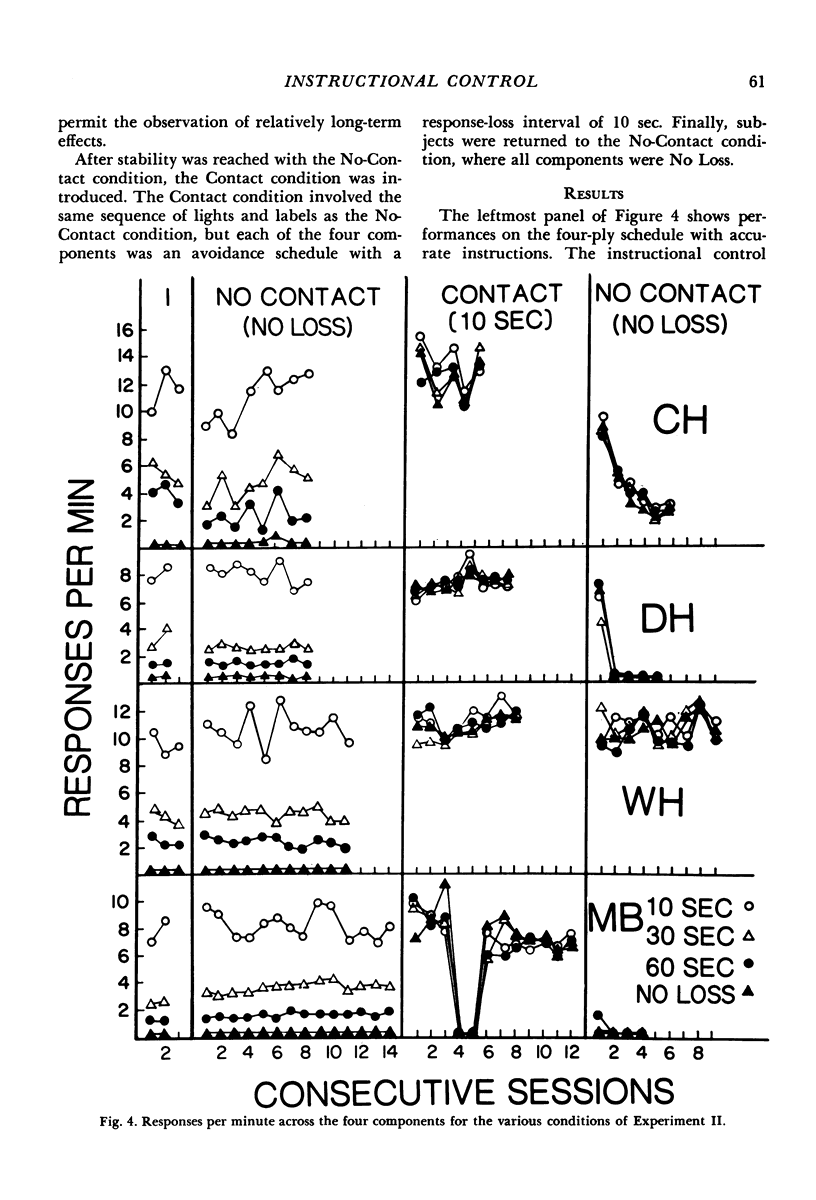
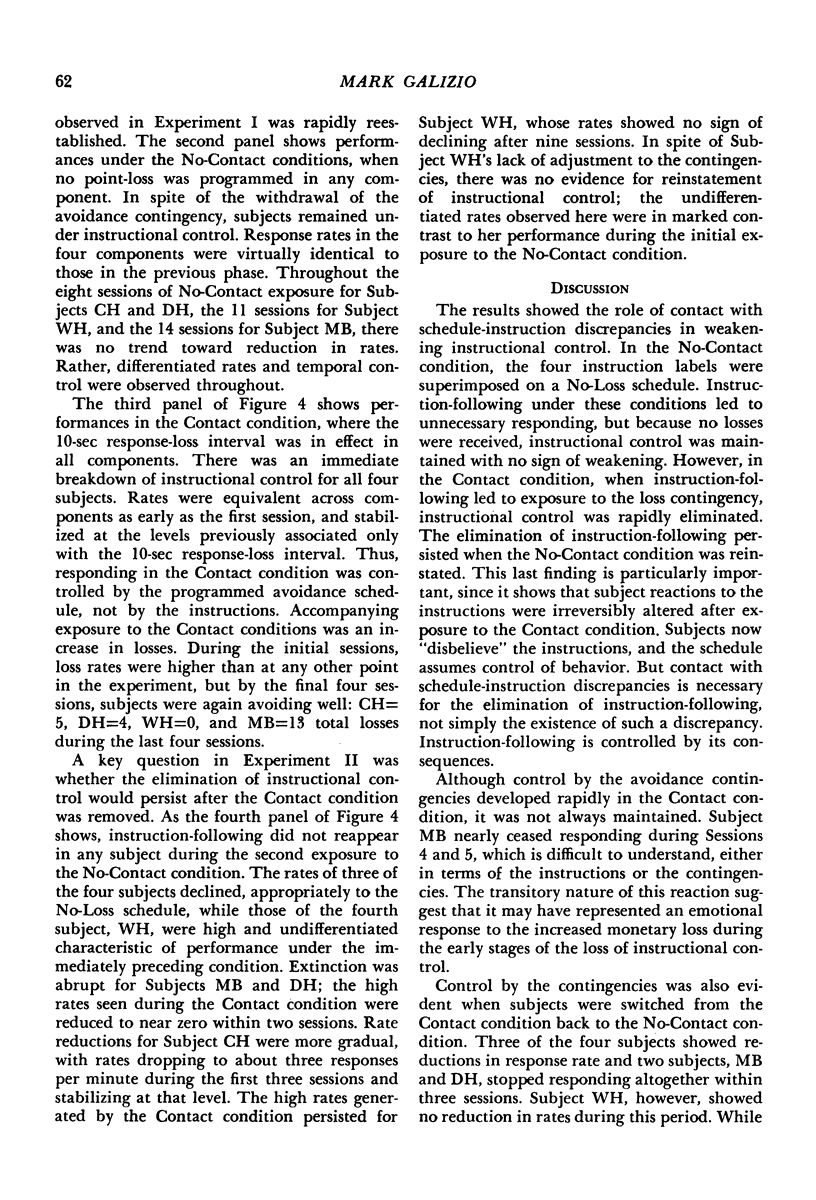
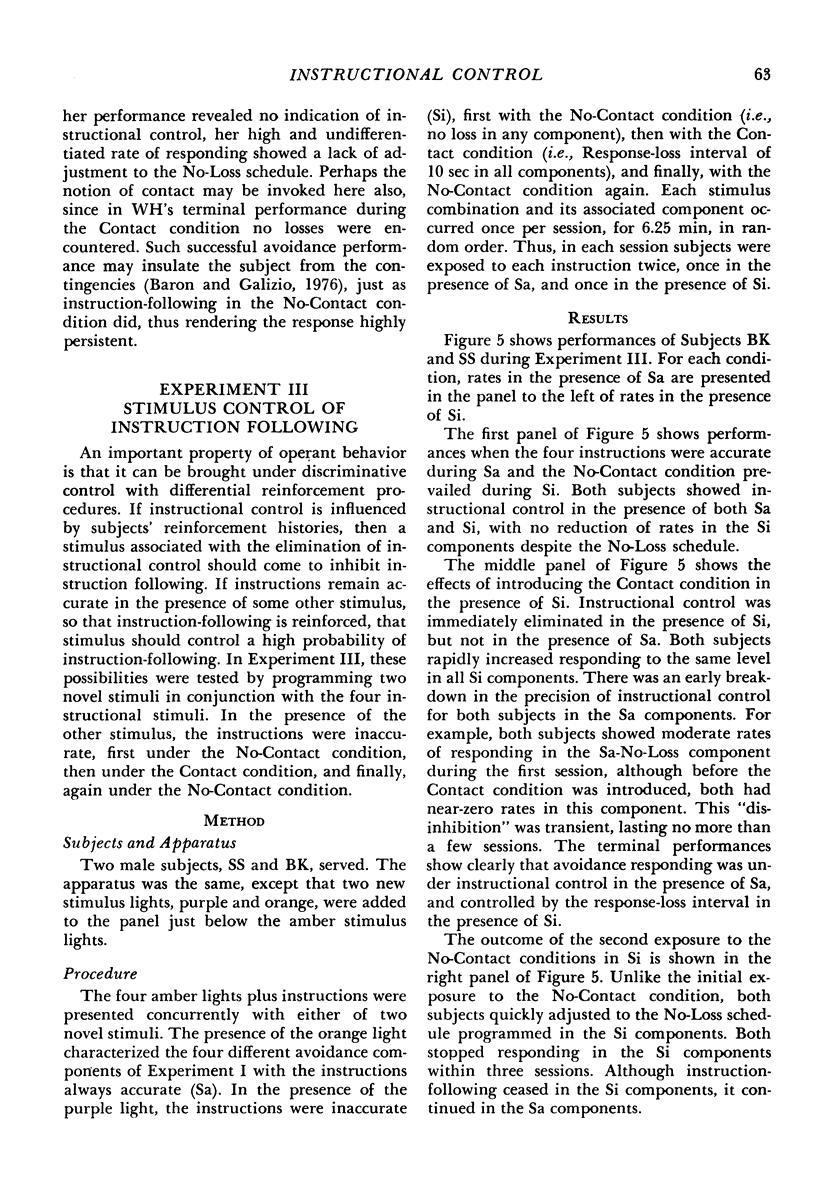
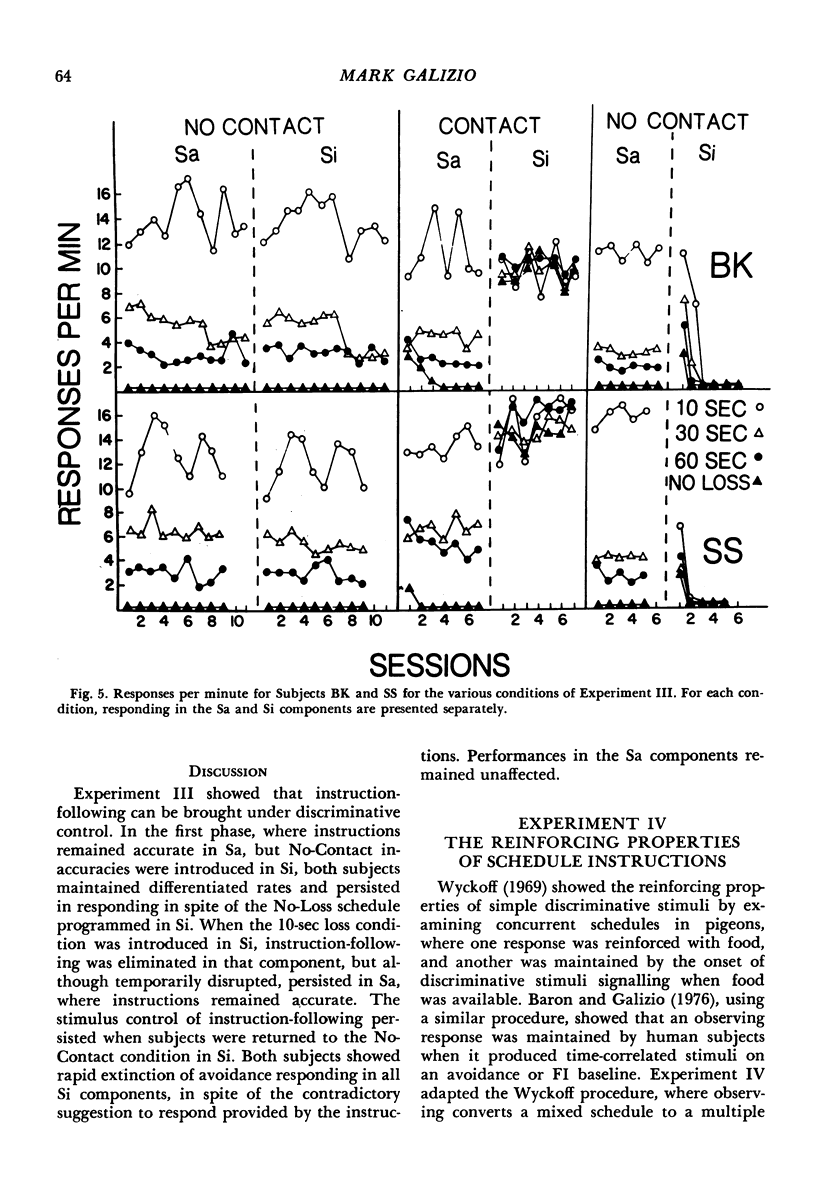
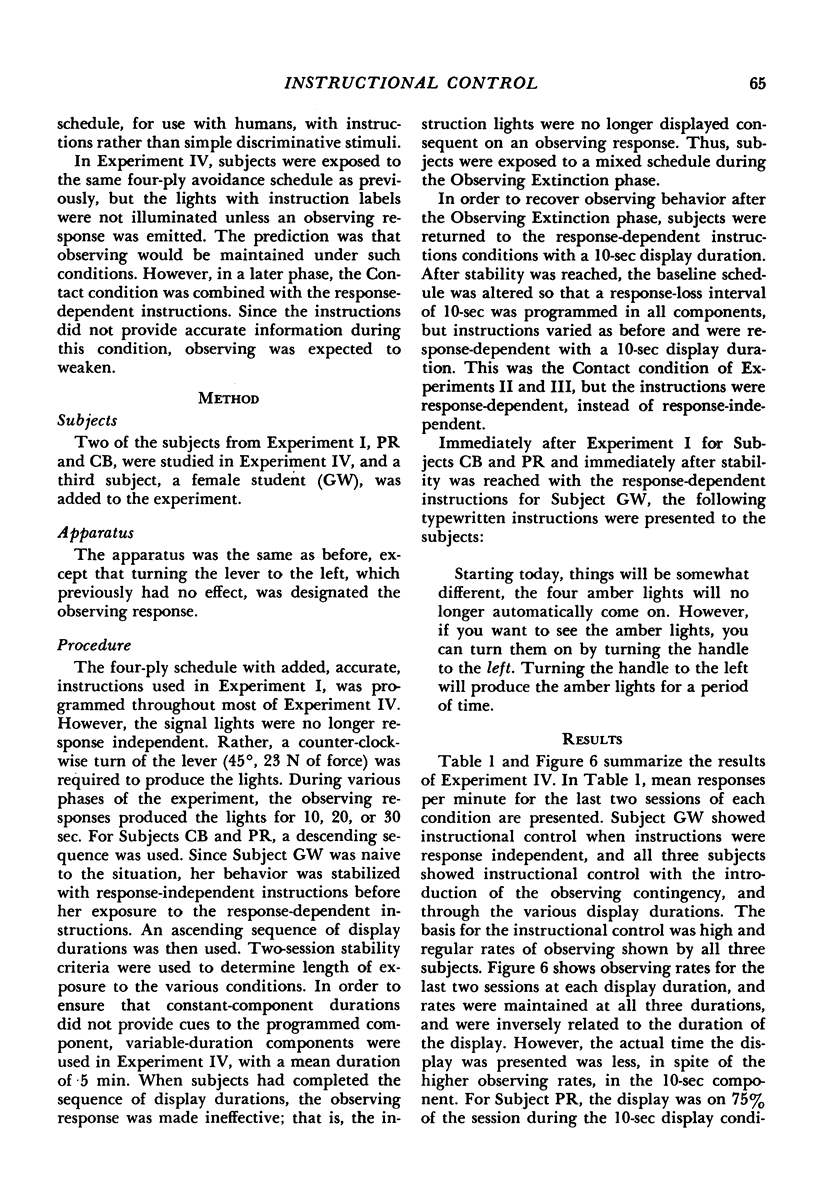
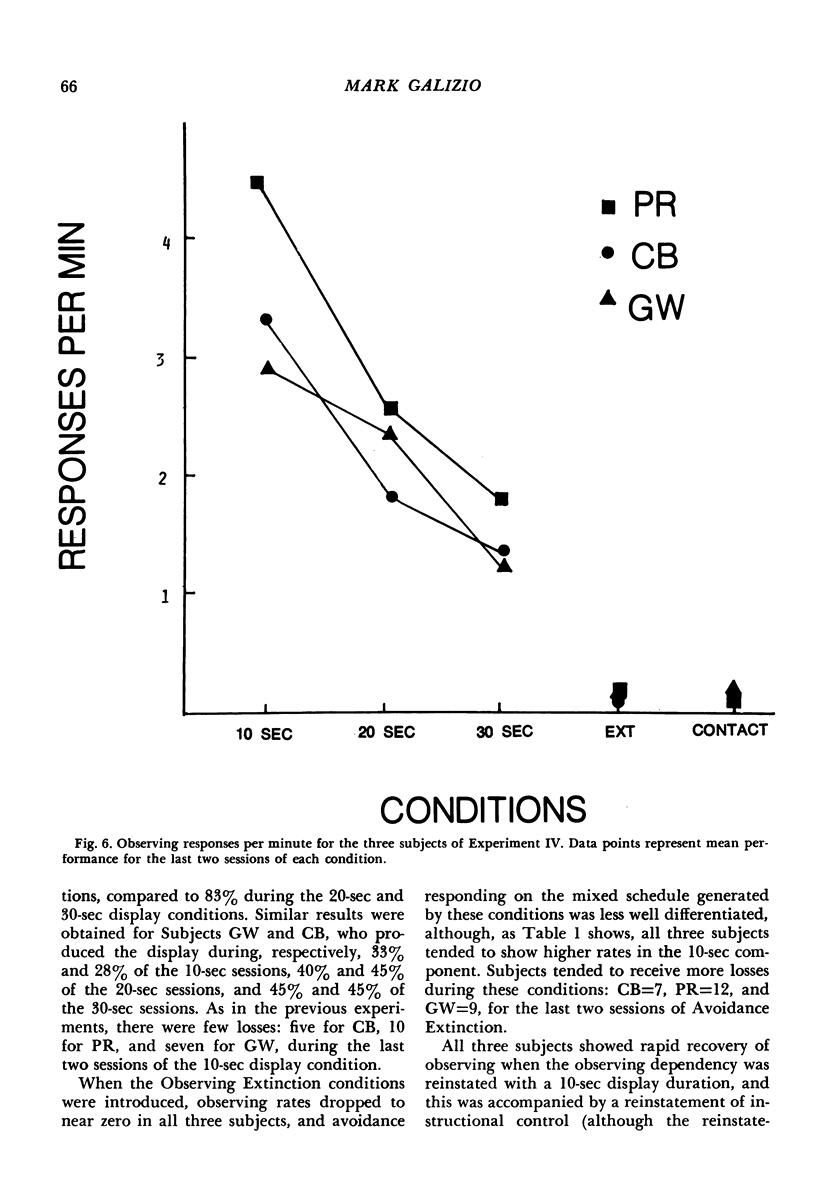
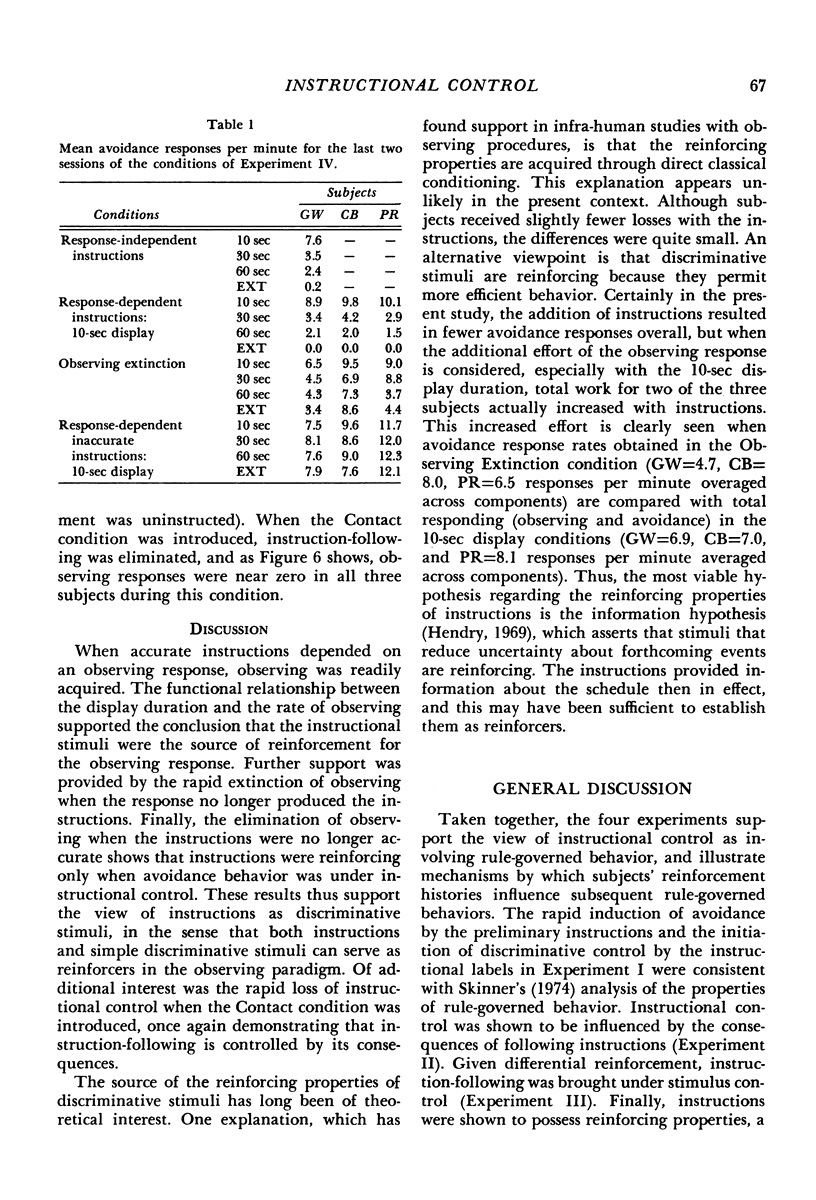
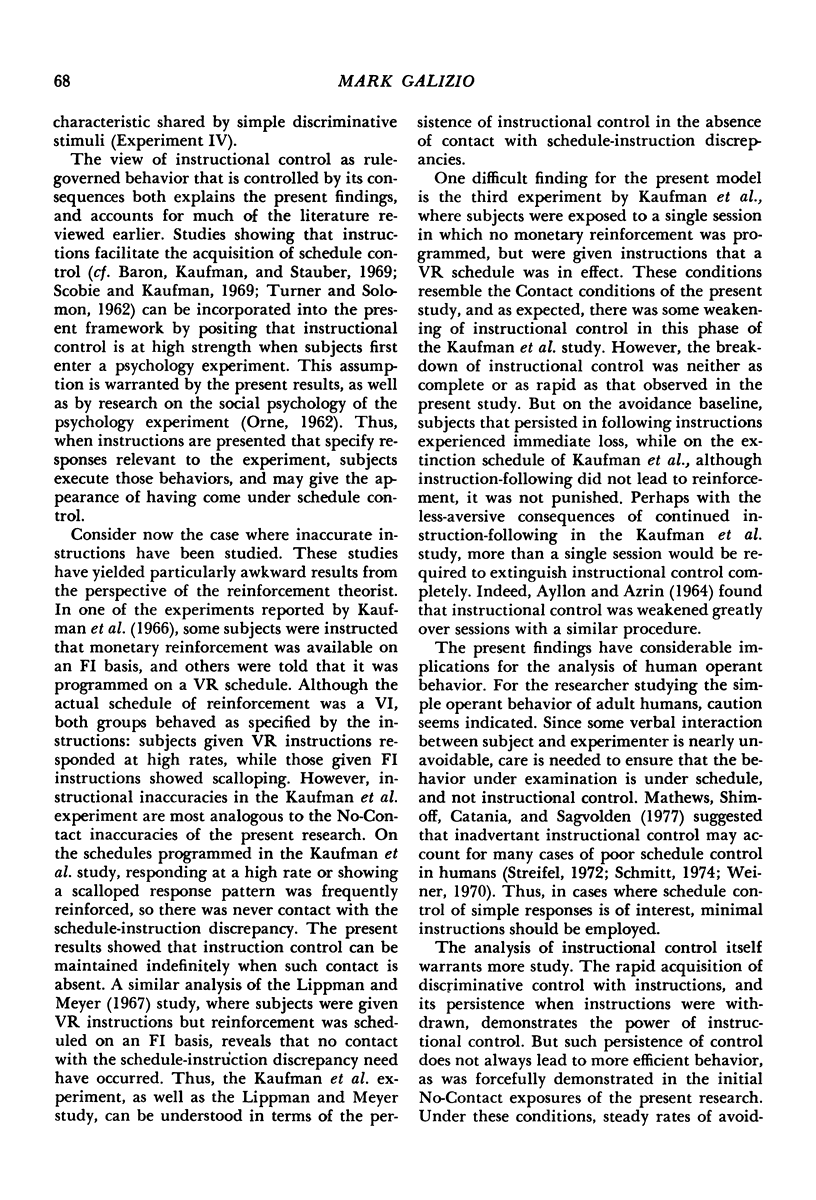
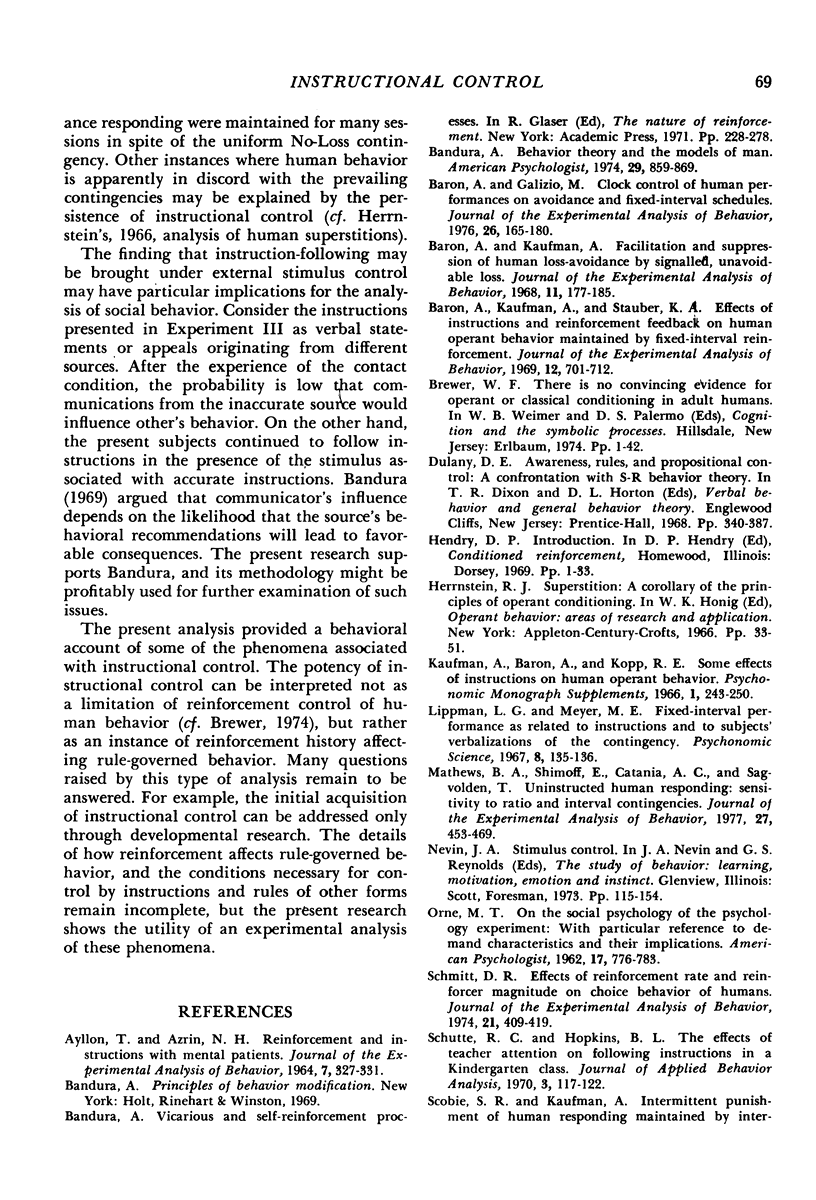
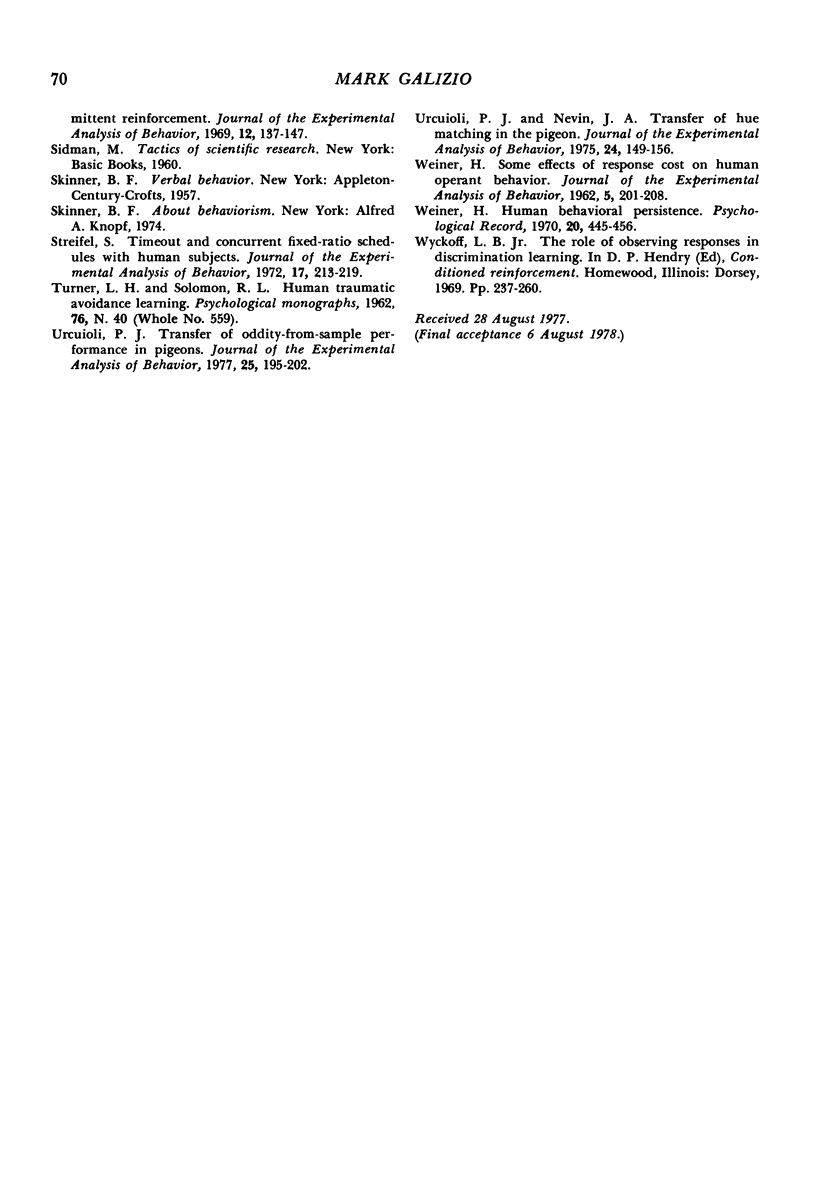
Selected References
These references are in PubMed. This may not be the complete list of references from this article.
- AYLLON T., AZRIN N. H. REINFORCEMENT AND INSTRUCTIONS WITH MENTAL PATIENTS. J Exp Anal Behav. 1964 Jul;7:327–331. doi: 10.1901/jeab.1964.7-327. [DOI] [PMC free article] [PubMed] [Google Scholar]
- Baron A., Galizio M. Clock control of human performance on avoidance and fixed-interval schedules. J Exp Anal Behav. 1976 Sep;26(2):165–180. doi: 10.1901/jeab.1976.26-165. [DOI] [PMC free article] [PubMed] [Google Scholar]
- Baron A., Kaufman A. Facilitation and suppression of human loss-avoidance by signaled, unavoidable loss. J Exp Anal Behav. 1968 Mar;11(2):177–185. doi: 10.1901/jeab.1968.11-177. [DOI] [PMC free article] [PubMed] [Google Scholar]
- Baron A., Kaufman A., Stauber K. A. Effects of instructions and reinforcement-feedback on human operant behavior maintained by fixed-interval reinforcement. J Exp Anal Behav. 1969 Sep;12(5):701–712. doi: 10.1901/jeab.1969.12-701. [DOI] [PMC free article] [PubMed] [Google Scholar]
- Matthews B. A., Shimoff E., Catania A. C., Sagvolden T. Uninstructed human responding: sensitivity to ratio and interval contingencies. J Exp Anal Behav. 1977 May;27(3):453–467. doi: 10.1901/jeab.1977.27-453. [DOI] [PMC free article] [PubMed] [Google Scholar]
- Schmitt D. R. Effects of reinforcement rate and reinforcer magnitude on choice behavior of humans. J Exp Anal Behav. 1974 May;21(3):409–419. doi: 10.1901/jeab.1974.21-409. [DOI] [PMC free article] [PubMed] [Google Scholar]
- Schutte R. C., Hopkins B. L. The effects of teacher attention on following instructions in a kindergarten class. J Appl Behav Anal. 1970 Summer;3(2):117–122. doi: 10.1901/jaba.1970.3-117. [DOI] [PMC free article] [PubMed] [Google Scholar]
- Scobie S. R., Kaufman A. Intermittent punishment of human responding maintained by intermittent reinforcement. J Exp Anal Behav. 1969 Jan;12(1):137–147. doi: 10.1901/jeab.1969.12-137. [DOI] [PMC free article] [PubMed] [Google Scholar]
- Striefel S. Timeout and concurrent fixed-ratio schedules with human subjects. J Exp Anal Behav. 1972 Mar;17(2):213–219. doi: 10.1901/jeab.1972.17-213. [DOI] [PMC free article] [PubMed] [Google Scholar]
- Urcuioli P. J., Nevin J. A. Transfer of hue matching in pigeons. J Exp Anal Behav. 1975 Sep;24(2):149–155. doi: 10.1901/jeab.1975.24-149. [DOI] [PMC free article] [PubMed] [Google Scholar]
- Urcuioli P. J. Transfer of oddity-from-sample performance in pigeons. J Exp Anal Behav. 1977 Jan;27(1):195–202. doi: 10.1901/jeab.1977.27-195. [DOI] [PMC free article] [PubMed] [Google Scholar]
- WEINER H. Some effects of response cost upon human operant behavior. J Exp Anal Behav. 1962 Apr;5:201–208. doi: 10.1901/jeab.1962.5-201. [DOI] [PMC free article] [PubMed] [Google Scholar]



